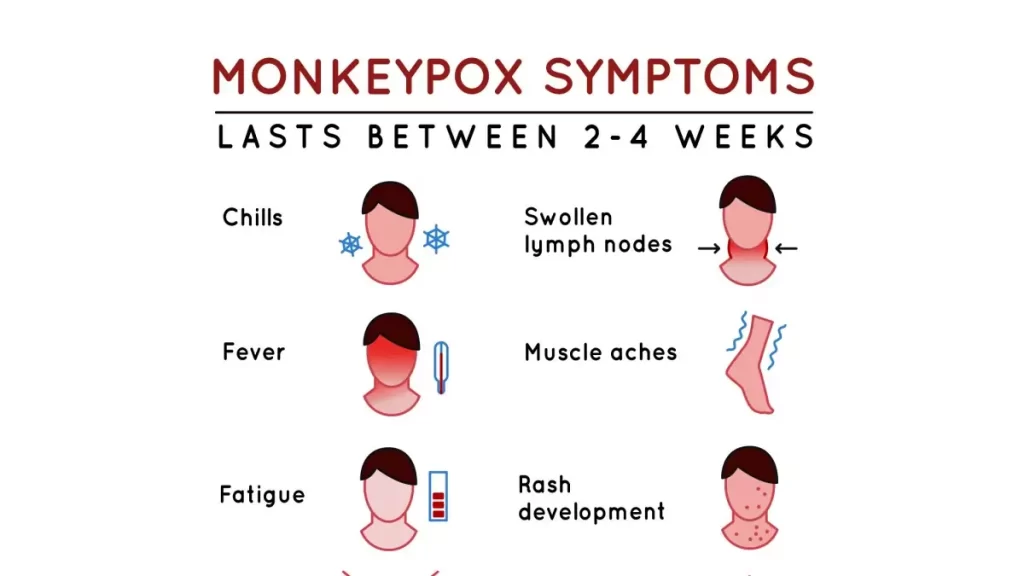The deadly disease Monkeypox has recently made its way from Africa to the United States and Europe, according to CNN . Although there have only been around 100 reported cases in the U.S., it’s still important to know the facts about this deadly virus and how you can protect yourself and your family from getting it or spreading it to others. Here are five things you should know about monkeypox.

1) What Is Monkeypox?
Monkeypox is a deadly virus that affects humans and other primates. The monkeypox virus is closely related to the smallpox virus, and both cause similar symptoms. However, Monkeypox is usually less severe than smallpox. There are two types of monkeypox: African monkeypox and sporadic monkeypox. African monkeypox is the more severe form of the disease and is more often fatal. Sporadic monkeypox occurs mainly in rural areas of Africa and typically causes milder symptoms. There is no specific treatment for monkeypox, but hospitalization and supportive care can help to prevent complications. A vaccine for smallpox can also help to protect against monkeypox. Vaccination for monkeys is also effective at preventing outbreaks. If you think you may have been exposed to either type of monkeypox, it’s important to seek medical attention as soon as possible so your doctor can evaluate your symptoms and start any necessary treatments right away.
2) How Do You Get Infected?
Monkeypox is caused by the monkeypox virus. The virus is found in animals, such as monkeys, and can be passed to humans through contact with an infected animal. It can also be spread from person to person through close contact, such as touching or shaking hands. The symptoms of monkeypox include fever, headache, muscle aches, and a rash that spreads from the face to the rest of the body. The rash eventually forms blisters and scabs. Monkeypox is deadly in some cases, but most people recover with treatment. There is no specific treatment for monkeypox, but patients can receive supportive care to help relieve symptoms. There is also a vaccine that can help prevent monkeypox infection.
3) What Are The Symptoms Of Monkeypox?
Monkeypox is a rare viral infection that causes a fever and rash. It is similar to smallpox, but less deadly. The symptoms of monkeypox include fever, headache, muscle aches, and swollen lymph nodes. A rash can appear anywhere on the body, but often starts on the face and spreads to the trunk and extremities. The rash starts as small red bumps and progresses to fluid-filled blisters. Monkeypox is usually mild, but can be severe in some cases. There is no specific treatment for monkeypox, but antiviral drugs may be used to relieve symptoms. Prevention of monkeypox is through vaccination. Those who have not been vaccinated against it should avoid contact with infected animals or humans.
4) What Are The Treatments For Monkeypox?
There is no specific treatment for monkeypox. Antibiotics may be used to treat secondary bacterial infections. Symptomatic and supportive care may be used to relieve symptoms. If you have severe monkeypox, you will likely need to be hospitalized.
There is no specific treatment for monkeypox, but there are some things that can be done to help relieve symptoms and make the person more comfortable.
Monkeypox is a viral disease that occurs primarily in Africa. It is similar to smallpox, but usually less severe.
The best way to prevent monkeypox is to get the monkeypox vaccine. The vaccine is not available in the United States, but it is available in some other countries.
5) How Can I Prevent Getting Infected?
There is no specific vaccine or treatment for monkeypox, but there are some things you can do to prevent getting infected:
-Wash your hands regularly and often, especially after coming into contact with an animal or animal products.
-Avoid contact with sick people or animals.
-Do not touch or handle infected animals, their body fluids, or their bedding.
-Cook meat and eggs thoroughly before eating them.
-Wear gloves when handling anything that could be contaminated with the virus, such as bedding or clothing of a sick person.
-Disinfect surfaces that may be contaminated with the virus. -Practice good hygiene by washing your hands frequently, especially if you have been exposed to someone who has contracted the virus.
-Consider using hand sanitizer if soap and water are unavailable.


Greetings! Very useful advice in this particular article! It is the little changes that produce the greatest changes. Thanks a lot for sharing!
Hi fantasticpictures4u.com,
I found your details on Google.com and I have looked at your website and realized your website has great design but your website ranking is not good on all search engines Google, AOL, Yahoo and Bing.
Our main focus will be to help generate more sales & online traffic.
We can place your website on Google’s 1st page. We will improve your website’s position on Google and get more traffic.
If interested, kindly provide me your name, phone number, and email.
Your sincerely,
Diana
Excellent blog here Also your website loads up very fast What web host are you using Can I get your affiliate link to your host I wish my web site loaded up as quickly as yours lol